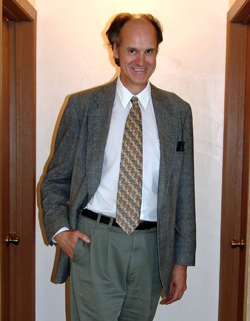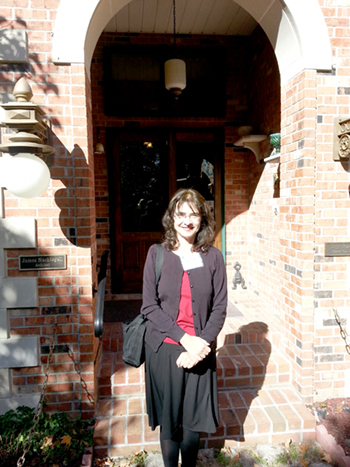 Brutal Minds: The Dark World of Left-Wing Brainwashing in Our Universities, Stanley K. Ridgley, Humanix Books, 2023, xiii + 275 pp., $27.99 hardcover, review by M.D. Allen (posted May 23, 2023 by Mary Grabar, Image used under license from Freestock.com).
Brutal Minds: The Dark World of Left-Wing Brainwashing in Our Universities, Stanley K. Ridgley, Humanix Books, 2023, xiii + 275 pp., $27.99 hardcover, review by M.D. Allen (posted May 23, 2023 by Mary Grabar, Image used under license from Freestock.com).
Many (most? all?) conservatives will have seen the face of a dinner-party hostess freeze in contempt and anger as an inadvertent utterance suggests the possibility that she has invited into her house someone who does not subscribe to leftist pieties, indeed someone who may well have voted for Trump in 2016 and 2020. Many (see previous parenthesis) conservatives will have realised that a long-standing friend has clicked in the necessary box to avoid seeing their Facebook posts, although at least we have not, in this case, been peremptorily unfriended. And a good number, alas, will have been told by the college-educated offspring they could previously talk to without stress and strain, quite the contrary, and been told, moreover, with precious little humility, that sex is medically assigned at birth and the Navajo (God save the mark!) have “many gender identities.” What is the reason for this contempt and anger? Wherefore the pain, whence the derision?
Stanley K. Ridgley suggests, with vigour, with full and careful documentation, and with a refreshing malicious wit, that we can blame the nature and role of the contemporary university. Nor, incidentally, do our hostess, our friend, or our offspring need to have spent years at Yale or Princeton. Such is the willed and shameless politicisation of higher education, such is its widespread degradation, that a couple of semesters at Dogpatch State U. will do the job just as well.
Brainwashing sessions
Ridgley’s first chapters deal with brainwashing sessions, and after reading them, with their explanation of unfreezing, changing, and refreezing, one does not jib at the phrase. At first the reader may be a little afraid that Brutal Minds is going to be excessively sweeping and theoretical, but any such fear vanishes after the first fifty pages, when a certain Sherry K. Watt makes her perniciously concrete appearance. Also treading the boards are bell hooks, whose dicta one remembers seeing in the signature blocks of the less impressive of one’s colleagues, and Barbara Applebaum and Cheryl E. Matias, neither of whose names one has previously heard.
The horrifying “motherscholar” at the University of Kentucky
The most horrifying, and the most contemptible, of these is the last named. Professor Matias teaches in the Department of Curriculum and Instruction, which ought not to exist, at the University of Kentucky, and perhaps nowadays that ought not to exist either. Her university webpage tells us that she takes a “feminist of color approach to deconstruct the emotionality of whiteness in urban teacher education”—whatever on earth that may mean; furthermore, she takes an interest in “motherscholarship and supporting woman [sic] of color and motherscholars in the academy.” (Incidentally, her 30-page c.v. is also available online, and is not to be missed.)
Bullying interventions
Matias’ students are required to write regular journal entries, which are then screened for wrongthink. One student who resisted the indoctrination was taken to task in a private communication: “We want you to . . . personalize the correct information from the readings . . . . In order to better support you through the process of emotionally investing in our learning process we request an appointment to go over the readings and your thoughts and feelings about them” (qtd. p. 80, my italics).
First, this sort of clumsy, tin-eared prose (two processes in eight words) is typical of Matias’ field of “Race & Ethnic Studies,” the specialization area of her Ph.D., as is the emphasis on “feelings,” although probably not the feelings of her patronised and despised white students; secondly, one notes the self-conscious virtue and the emotional bullying, and wonders what would have happened had the “request” been received with less than perfect submission. Ridgley quotes two students who understandably could not take the strain, and cracked. The tone of their confessions is weirdly reminiscent of those from the cells and camps of the former Soviet Union, although the terms in which they acknowledge defeat and submission (racism, white supremacy, white privilege, white male) are different. But, as Ridgley reminds us, we are here dealing with a brutal neo-Marxism, in which race replaces class in the oppressor-victim dichotomy. Another difference is that Professor Matias, unlike the coarse Soviet louts, has attained her aims—that is to say, she has penetrated, then overthrown, then perverted the intimate sense of self of her subjects—without needing to resort to the imposition of shattering physical labour, or protracted semi-starvation, or the threat or reality of physical torture, such is the clear technical superiority, the complacent smoothness, of her modus operandi. Such, too, is the complicity of the institution in which she works and the society in which she lives.
Get a master’s degree in education. Work in student services!
But the problems do not end with the faculty. Today, those who work in Student Services want to do more than process grade-change forms, organise free pizza for Orientation Week, and make sure that the students in the men’s dorms change their bedsheets regularly. Some of Ridgley’s best phrases are reserved for “a circle of friends who are the mediocre graduates of the least-respected entity in the university [in my not inconsiderable experience, an entirely justified reference to the Faculty of Education],” “the foolishly grinning functionaries of student affairs, who ‘finally get to use my master’s degree!’” and “human lactation staffers, dance therapists, poet-clerks, and other folks who are exceedingly proud of the master’s degree in education” (pp. 51, 183, and 92). The inevitably sour, or enraged, response to this lèse-majesté from people who do not fail to take themselves with all due seriousness will doubtless begin with “unprofessional.”
Reeducation in the dorms
You want unprofessional? Here is the notorious Curricular Model instituted at the University of Delaware in the Autumn of 2007, as described by Professor Jan Blits of UD and Adam Kissel, a reporter: “a mandatory education, or re-education, program for all seven-thousand students living in the university’s dorms [, combining] intimidation and humiliation, coercion and indoctrination, to inculcate a hard-left, anti-America stance favored by the ResLife officials. The program looked as if it had been designed by the North Korean Minister of Propaganda” (qtd. p. 99).
Indeed, it is ResLife and its allotropes that are the focus of the second half of Ridgley’s book. The latter chapters employ the metaphor of a three-headed Cerberus: the Faculties of Education, which notoriously accept the least academically promising of students; the offices of Student Affairs, aggressive and burgeoning, which offer the Faculties’ product (and it is difficult to think of them in other terms) a materially secure niche and a scope for action; and the professional clubs for those in Student Services, the ACPA (American Colleges Personnel Association) and NASPA (National Association of Student Personnel Administrators), which set standards and requirements for education schools’ graduate programmes in “Student Affairs” and “Educational Leadership.” The clubs also publish journals, the articles in which attempt to theorize, legitimise and dignify the programmes and interventions of Student Services by creating—or rather stealing from the faculty—a factitious and pretentious philosophy that would situate, justify, and exalt them.
So, with the possible exceptions of the various “grievance” studies departments, there can be no area of education more devoid of any understanding of what education is, more bereft of intellectual pith and savour, more monolithic in its attitudes and beliefs, more defensive, more fearful of the only diversity that counts than, paradoxically, Faculties of Education. Here, as Ridgley justly writes, personal offence is taken at disagreement, and criticism can never be made in good faith but only as an attack on that validity of personal experience on which everything depends (p. 196).
What to do
Nor can there be any sector of the contemporary university more catastrophic in its influence. What to do? Ridgley plausibly suggests that university authorities are often either actively breaking US law regarding racial discrimination or looking the other way when it happens; he suggests too that events organized by Student Affairs and even classes taught by faculty that are intended to break down student resistance to leftist dogma, sometimes causing acute distress, could break laws regarding the necessity of informed consent before experimentation on human subjects. These are avenues that could profitably be explored.
But one needs no specialist knowledge to warn one’s children, grandchildren, and nieces and nephews of what may well await them at university before they have even finished unpacking: mandatory orientation sessions that intentionally attack the students’ faith in the goodness of their parents, their family, their church, and the society in which they live.
And that is just the beginning.

M. D. Allen
Professor of English Emeritus
University of Wisconsin-Fox Valley, contributor to the Dissident Prof website and book, Exiled: Stories from Conservative and Moderate Professors Who Have Been Ridiculed, Ostracized, Marginalized, Demonized, and Frozen Out For sale at Amazon.
<
M. D. Allen





